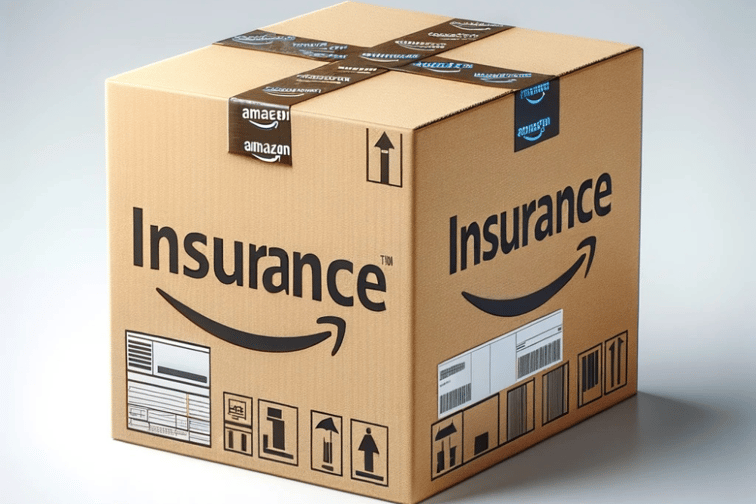

Amazon may have shuttered its UK insurance store, but there is no guarantee that the big tech giant has said “goodbye” to insurance forever – and here’s why agents may not want to rest on their laurels just yet.
The Amazon Insurance Store sputtered to a close in January, just 15 months after opening its virtual doors. However, Amazon will have gleaned information from the short-run enterprise that it could put to better use in the US or elsewhere.
The UK is a solid sandbox to pilot an online insurance project with strong regulation and insurance permeation. Its personal lines consumers and insurers are digital-first, but while this may seem like a net benefit for any incoming online insurance business there is a caveat that may be at the heart of Amazon’s failure there.
UK personal lines insurance is dominated by price comparison websites (PCWs), which each serve up offerings from more than 100 insurers.
Stop the man or woman on an American street and ask them which insurers they know, and (assuming they don’t express their anger over skyrocketing homeowners’ insurance costs) they might reply Allstate, GEICO, State Farm, or Progressive.
Try the same thing in the UK and an insurance company, or even a broker, might not even be top of the list (you might still catch some anger about rising premiums, though).
PCWs pay big bucks to stay front of mind. They are an advertising machine.
Their presence has pushed the nation’s dwindling 2,000 odd broking businesses to ignore the online model at their peril. To put their impact into perspective, just one big branch-led outfit, the Howden business formerly known as A-Plan, is still standing. Other large standard personal lines brokers have flocked online, to do business on aggregators.
Amazon’s broker play, with a four-strong panel of insurers, has been likened to a ‘mini-PCW’. It’s not a flattering comparison for a big tech beast.
Mark Andrews, insurance director at consulting firm Altus’ UK branch, sums it up well: “[Amazon] was just another panel broker trying to compete in a very busy personal lines market.”
The US market has comparison websites but it does not have an online aggregator competition problem. What it does have, is space for big tech to come in and create one. That should be a concern.
In an agent-heavy region with a limited online aggregator presence, an insurer-backed Amazon play has the potential to upend the market.
Recent speculation has abounded that GEICO is looking to work with independent agents. Imagine the impact if it, and others, partnered with an Amazon-type ‘agency’. Rather than competing with the big insurance fish for airtime in consumers’ minds, Amazon could be right up there with them.
Now imagine if Amazon also used its fiscal firepower for an advertising ambush rather than waiting for consumers to come to it. And if it bundled in smart tech to help people improve their home security and cut costs, as onlookers like Andrews had hoped to see in the UK.
There are a lot of ‘ifs’ here. And rival Google has come in and failed before, though some of that may be down to timing.
Another huge ‘if’: Would carriers want to partner with a tech behemoth’s comparison service, particularly considering the ‘race to the bottom’ that many believe PCWs have driven in the UK?
That said, if Amazon went in all guns blazing and nabbed a big partner, others might feel they had little choice but to hop on board. And Google has courted insurers in the past.
Amazon’s UK insurer partners will have seen being added to its panel as a coup, even if it ultimately cost them when the lights went out.
There is also the matter of regulation, with a state-by-state approach potentially cumbersome and costly.
With homeowners’ rates on the up for many, customers may not like what they see on Amazon’s platform and that could come back to bite. Could you implement a FAIR Plan? But with insurers tightening their belts, people are frustrated with their agents and carriers and may be crying out for (at very least the illusion of) choice.
If it stuck to a middle-man role, the impact of natural catastrophes and claims inflation need not worry Amazon.
You’d hope that human agents will remain seen as more reliable sources of advice than a website. Remember though, it remains to be seen the type of interaction gut punch that generative AI technology like ChatGPT could pack – as much as that may send a liability quiver up your spine. And while agents trump on empathy, customers might not know the value of this until it comes to claim crunch time.
The biggest ‘if’ remains whether Amazon, Google or another big tech competitor would see the value of an insurance play versus shinier growth opportunities like existing enterprises in the cloud, AI, and ad-peppered streaming.
Maybe illustrating how it sees insurance in the grand scheme of things: as news of Amazon’s UK insurance store closure broke, rumors were swirling that Prime was about to drop $100 million on a series with Youtuber MrBeast.
Never say never, though. Amazon’s UK insurance play might have sunk, but an America unburdened by PCW strain could make a more attractive and chunkier target. There is little room for complacency.
Got a view on the Amazon Insurance Store and big tech in insurance? Leave a comment below.
